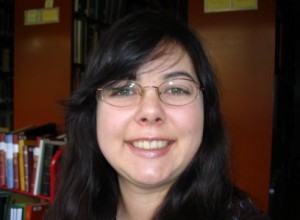A large part of literacy instruction is explaining the resources available, one of the ongoing debates in the scientific community, and the library community, about how scientists should and will be communicating and sharing information in the future.
Literacy Instruction Readings, Reference, Tips, & Tutorials:
Office for Literacy and Outreach Services Toolkits (ALA)
http://www.ala.org/ala/aboutala/offices/olos/toolkits.cfm
10 Tips for Teaching Technology to Teachers by Liz B. Davis
http://edtechpower.blogspot.com/2009/09/10-tips-for-teaching-technology-to.html
Cites & Insights: Crawford at Large Vol. 9 No. 12 http://citesandinsights.info/v9i12a.htm
Developing Research & Communication Skills Guidelines for Information Literacy in the Curriculum, Middle States Commission on Higher Education
http://www.msche.org/publications/Developing-Skills080111151714.pdf
ILI-L, the Information Literacy Instruction Discussion List (hosted by ALA) http://lists.ala.org/wws/info/ili-l
IL Resources & Tools by Lisa Metzer http://www.mindomo.com/view.htm?m=b93aa8ef223445ff8919191fbc3ed23c
Information literacy in the disciplines (ACRL wiki)
http://wikis.ala.org/acrl/index.php?title=Information_literacy_in_the_disciplines
LION: Library Information Literacy Online Network ? Downloadable & Embeddable Guides http://liontv.blip.tv/
Project Information Literacy http://projectinfolit.org/
Turning Topics Into Searches by Iris http://pegasuslibrarian.com/2009/11/turning-topics-into-searches.html
UCLA Library Research Guides ? Teach Information Literacy & Critical Thinking! http://guides.library.ucla.edu/teachingtips
Advice:
The Top Ten Things a new Sci/Tech Librarian Should Know: Developing Core Competencies (STS Issues in Sci/Tech Library Management Discussion Group ALA Annual Meeting, Toronto June 22, 2003) Victoria S. Mitchell
Looking Toward the Future:
Citizen Scientists Reconnecting Science with Civil Society (pdf)by Jack Stilgoe ~ If you only look at one link I have listed I highly encourage you to read the first part of this pamphlet, starting on page 13 of the pdf file.
Libraries and e-science by Lorcan Dempsey
Training to Climb an Everest of Digital Data by Ashlee Vance
What Should Social Software for Science Look Like? By Cameron Neylon
Science Readings and Resources:
Annual Reviews ? Subscription Based Resource
http://www.annualreviews.org
Bibliography of Scientific and Industrial Reports Prepared for the web by Robert L. Bolin
http://www.unl.edu/Bolin_resources/bsir-xml/
BioMed Central The Open Access Publisher Free Access, registration required. This site hosts journals on a variety of topics, mainly medical, including journals on ecology, plant biology and zoology.
BIRN Biomedical Informatics Research Network
http://www.birncommunity.org/
BookBoon.com Online Ad Financed Textbooks in Business, Math, and Science
Cataloging Hidden Special Collections and Archives
http://www.clir.org/hiddencollections/index.html
Deep Dyve Online Rental Service Announcement
http://www.deepdyve.com/corp/about/press/20091027
Directory of Open Access Journals
http://www.doaj.org
Government Information Sources for Science and Technology ACRL wiki
http://wikis.ala.org/acrl/index.php/Government_Information_Sources_for_Science_and_Technology
Gray literature: Resources for locating unpublished research by Brian S. Mathews C&RL News, March 2004 Vol 65., No. 3
Green Foostep An assessment tool for reducing carbon emissions from building construction projects by the Rocky Mountain Institute ~ I’ve seen several reference questions about carbon emissions recently; it’s also been suggested as a planning resource for creating new library buildings.
INFOMINE Scholarly Internet Resource Collections
http://infomine.ucr.edu
LibGuides by Springshare Paid Service
http://www.springshare.com/libguides/
LOCKSS (Lots of Copies Keep Stuff Safe)
http://www.lockss.org/lockss/Home
Mendeley Research Networks
http://www.mendeley.com/
NLM Gateway Search multiple NLM resources in one search.
Orphan Data
http://orphandata.org/
Rethinking Science & Technology for the 21st Century by Alan Maynard
http://2020science.org/rethinking-science-technology-for-the-21st-century/
RSABG Library: Research Sources in Botany by Harvey R. Brenneise and Gary D. Wallace ~ This was created to support an annual graduate level research class in the field of Botany.
Scholarly Electronic Publishing Bibliography by Charles W. Bailey, Jr.
The Scholarly Electronic Publishing Bibliography (SEPB) presents selected English-language articles, books, and other printed and electronic sources that are useful in understanding scholarly electronic publishing efforts on the Internet.
Science: So what? ? So what? By Alan Maynard
http://2020science.org/2009/11/27/science-so-what-so-what/
SPARC Guide: Income Models for Supporting Open Access
http://www.arl.org/sparc/publisher/incomemodels/
Top 10 Sci-Tech Books 2009 by Donna Seaman for Booklist Online
http://www.booklistonline.com/default.aspx?page=show_product&pid=3885134
Trailblazing Three and a half centuries of Royal Society publishing ~ 60 articles selected from over 60,000 published by the Royal Society (UK) between 1665 and 2010.
Translation resources on the Web: A guide to accurate, free sites by Rebecca A Martin and Sarah Mc-Hone-Chase C& RL News, June 2009 Vol 70, No. 6 ~ Due to the Internet access to scholarly information from foreign countries is increasing the need for translation, while I would not recommend using these resources to try and translate an entire article they may be use in translating abstracts, or enough of an article to determine whether or not it is worth having fully translated.
The UCverse
http://ucverse.universityofcalifornia.edu/
WolframAlpha ~ Wolfram|Alpha’s long-term goal is to make all systematic knowledge immediately computable and accessible to everyone. We aim to collect and curate all objective data; implement every known model, method, and algorithm; and make it possible to compute whatever can be computed about anything?
Blogs:
2020Science by Alan Maynard ~ Anything Alan writes is worth reading and, while he is involved with policy, he accurately represents a large portion of the scientific community’s thoughts. He is also very good about citing sources and explaining in detail why he disagrees with alternate points of view, enabling the reader to make a more informed decision on whether or not they agree with him.
RSS Feed – http://feeds.feedburner.com/2020science
Confessions of a Science Librarian by John Dupuis
RSS Feed – http://scienceblogs.com/channel/rss.php
CS Librarian News by Missy Harvey ~ Missy is the Computer Science Librarian at Carnegie Mellon University. The focus of her blog is to distribute information in the areas of computer science, electrical & computer engineering, and robotics.
RSS Feed – http://cslibrarian.net/feed
Discussion for best practices and links to Escience Portal, Supporting biomedical librarians everywhere?
RSS Feed – http://escienceportal.wordpress.com/feed/
Science Blogs Scroll down the page and you can choose your news feed topic. The definition of Science being used encompasses politics, and the arts, as well as the hard sciences and education. Be warned it is easy to be overwhelmed by their subject specific news feeds, it may be better to choose a few frequent posters to follow than all people posting on a given subject.
Science in the open, An openwetware blog on the challenges of open and connected Science by Cameron Neylon
RSS Feed – http://feeds.feedburner.com/scienceintheopen
Just For Fun:
Drive for geothermal power heats up on US campuses by Dinesh Ramde

